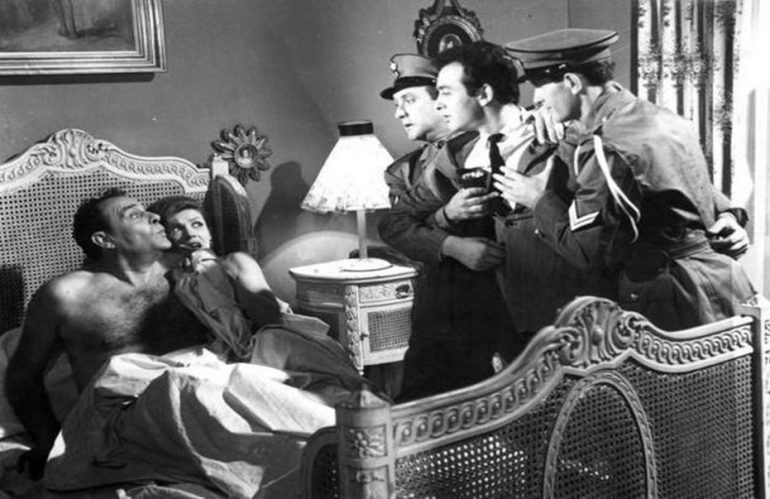In Greece, since 1982, adultery has been abolished as a criminal offense and as an absolute reason for divorce. It is important to note that the law on adultery has been in force in the country for about four decades. In fact, incredible stories were written in those years, some for laughter and others for crying.
Adultery is the sexual encounter of a married person with a person other than his / her spouse (the extramarital affair) and is as old as the institution of marriage and family. The answer to the question "why commit adultery?" is different from every human being. For many philosophers, adultery in the woman is explained in the attempt to seek the best of what she has, while in the man, in the attempt to simply seek the new.
The playwright A. Chekhov wrote in one of his dialogues: "The unfaithful woman is like a cold steak that you do not want to even touch, because someone was already holding her in his arms", showing in simple words the disgust that the cheating husband feels for his unfaithful wife. But even the reconciliation of the adulterer with his partner will be reminiscent of the gluing of a crystal vase from its wreckage: "you can still use it, but you can no longer look at it with admiration." Of course, there were many writers who, through their writings, emphasized that infidelity does not bring happiness but, on the contrary, problems and misery.
Adultery in ancient Athens…
It was a very serious crime and the punishment of adultery was decided in court, in front of a court. Of course, the older law of the Dragon left the margin to the one who caught the adulterers on their own to decide their fate (he was essentially taking the law into his own hands). Later, Solon's laws offered his wife three alternatives: either to kill both adulterers, or to castrate the adulterer, or to torture him / her to take his / her life. In the event that violence was used for the reunion, the spouse could only claim compensation determined by the court.
In other Greek cities, according to Plutarch, the unfaithful wife did not escape deportation (it was a procession starring the deportee with a frantic mob that insulted and humiliated him in every way in the streets and squares).
In Kymi, for example, they first dragged her to the market and then raised her on a large stone, in order to "boast" her and make fun of her. Then they sat her on a donkey and took her for a walk around the city, others cursed her and others spat on her. Then, they took her back to the same stone and "christened" her "onovatida" (an honorable "title" that she carried for life). She was also barred from participating in all public ceremonies. Needless to say, no other woman came in contact with her (because then her own name would come out). It goes without saying that in all Greek cities her husband kicked her out of the house even if he forgave her because she did not want to be blamed and despised by the people.
From the establishment of the modern Greek state, according to Article 286 of the Criminal Code of Bavaria, which was in force until December 31, 1950, adultery was characterized as a misdemeanor. It remained a misdemeanor with the new Penal Code that came into force on January 1, 1951. Article 357 provided for a one-year sentence for adultery, while the crime was prosecuted only with the complaint of the suffering husband. Adultery was punished with impunity when there was a separation of the spouses or tolerance of the suffering spouse.
The perpetrators had to be arrested on the spot to make it easier to substantiate the accusation…
In order to certify the crime, the perpetrators had to be arrested on the spot by the police. They were not allowed to get dressed and were immediately taken to the police station. The illegitimate couple stayed overnight in custody and the case was heard the next day. Most were sentenced to 6 to 8 months in prison - a sentence that could be redeemed. Detectives were sought after at the time, and newspapers filled their pages with stories of adultery that were, in fact, a common but well-sold story. If, in fact, the journalist was present at the time of the raid, the newspaper made crazy sales the next day.
The humiliation for the adulterers was enormous. The same with the shock…

In 1982…
Adultery was decriminalized in Greece by the government of Andreas Papandreou, in the context of the liberalization of the network of provisions concerning Family Law. The Church of Greece reacted, arguing that "the decriminalization of adultery will shake the foundations of the family and marriage" (January 21, 1982). However, the government of Andreas Papandreou was not affected and repealed Article 357 of the Penal Code with Article 8 of Law 1272/82, which was published in the Government Gazette on August 20, 1982.

Regarding the urban consequences…
With Law 1329/1983, adultery ceased to be an absolute reason for divorce. It can, however, lead to the dissolution of the marriage only if it is judged that it has so severely disturbed the marital relations, that the continuation of the marital relationship is reasonably unbearable for the plaintiff (article 1439 of the Civil Code).
Source: ant1iwo.com
